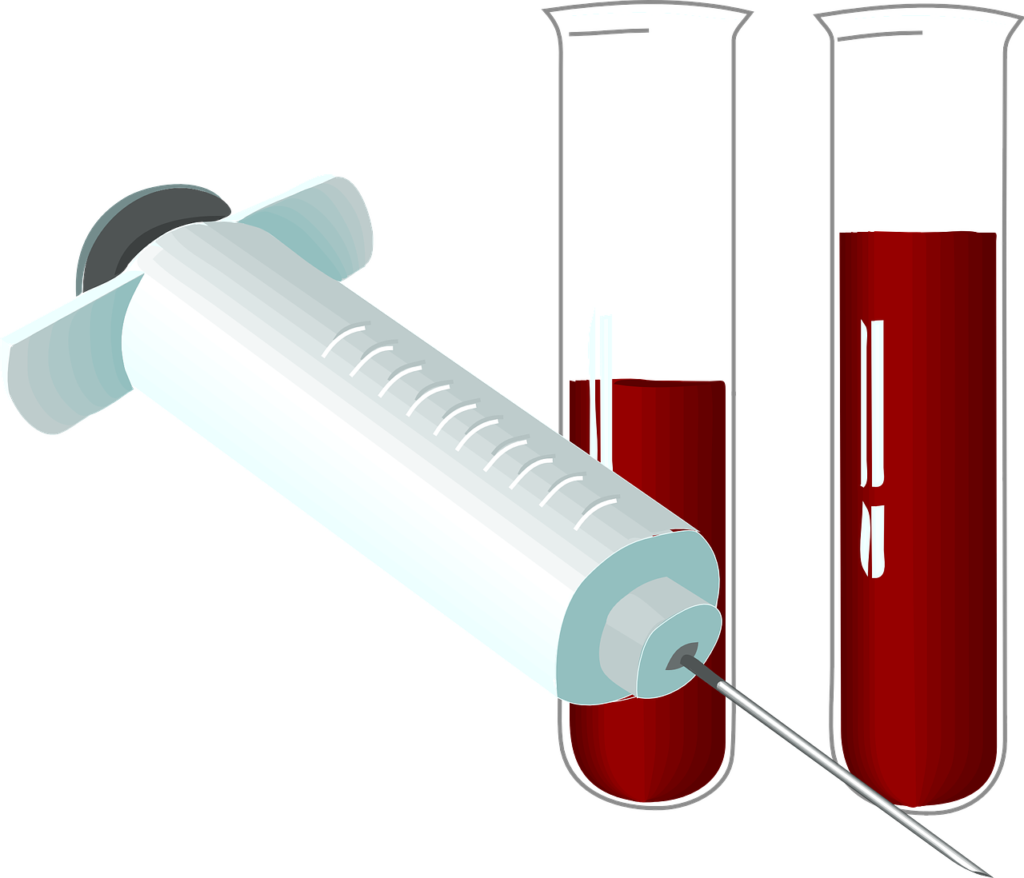Contact Us 720-964-1335 or 901-675-6125
Which Blood Tests Are Abnormal in Fatty Liver Disease?

So, you have blood results back from a physical exam. The healthcare provider mentioned that your blood results suggest you may have liver injury or damage. The healthcare provider explained your test results and you nodded your head in understanding. But did you really understand the meaning of the test results? While there are not any specific blood tests which can confirm a fatty liver diagnosis, there are a few laboratory tests which can suggest you may have a damaged liver. In this blog post, we will discuss some common liver blood tests which may suggest a fatty liver and what they are measuring.
Common Abnormal Blood Tests in Fatty Liver Disease:
- Liver Enzymes (AST and ALT): These enzymes are named aminotransferase or transaminase (during catalyzation they transfer amino acids from one molecule to the next). They are the most sensitive and widely used enzymes when determining liver injury and speculating about fatty liver disease. When liver tissue is damaged, cells spill these enzymes in the blood causing elevated levels of aspartate aminotransferase (AST) and alanine transaminase (ALT). AST and ALT are not only found in the liver but are also present in kidneys, heart, pancreas, and muscle. However, ALT is more prevalent in the liver making it a more reliable indicator of how healthy a liver may be.
- Gamma-Glutamyl Transferase (GGT): GGT is another liver enzyme which is present in many tissues throughout the body. But it is mostly found in the liver, kidneys, and pancreas. GGT helps to metabolize glutathione (an antioxidant). When bile duct tissue is damaged, or a blockage or constriction occurs to the bile ducts, GGT is often the first enzyme to be released. This enzyme is a good indicator for bile duct injury and is often used as a marker for alcohol consumption.
- Alkaline Phosphatase (ALP): Elevated levels of alkaline phosphatase may indicate liver, biliary, or bone disease. ALP is primarily in the liver and bones but can also be found in the intestines and kidneys. While it is less specific to fatty liver disease, it can still be affected in certain cases.
- Bilirubin: Bilirubin is a yellow pigment produced by the liver and a byproduct of the breakdown of old red blood cells and cells containing porphyrins. If the liver has a hard time processing bilirubin into bile or if the bile ducts are blocked, high levels of bilirubin will occur suggesting liver problems. Increased levels of bilirubin may occur in advanced stages of fatty liver disease or in cases of severe liver dysfunction.
Best Way to Correct Abnormal Liver Blood Tests:
- Consult a Healthcare Provider: If you receive abnormal blood test results suggestive of fatty liver disease, it’s crucial to consult a healthcare provider for further evaluation and guidance. They can perform additional tests, such as imaging studies or a liver biopsy, to confirm the diagnosis and assess the severity of liver damage.
- Address Underlying Causes: Treatment for fatty liver disease often involves addressing underlying causes, such as obesity, diabetes, or high cholesterol. Adopting a healthy lifestyle that includes losing weight, regular exercise, and consuming a balanced diet can help improve liver health and normalize blood test results.
- Medication Management: In some cases, healthcare providers may prescribe medications to manage underlying conditions or address specific symptoms of fatty liver disease. However, these should always be prescribed and monitored by a qualified healthcare professional.
- Regular Monitoring: Once diagnosed with fatty liver disease, it’s essential to undergo regular monitoring of liver function through blood tests and follow-up appointments with a healthcare provider. This allows for early detection of any progression of the disease and adjustment of treatment strategies as needed.
Disclosure: This post contains affiliate links from one of our trusted partners. We may earn from qualifying purchases. There is no additional cost to you, and we only share products we personally recommend or believe align with Ample Health & Wellness values and mission.
Conclusion:
Fatty liver disease is a prevalent condition that affects millions of individuals worldwide. While a fatty liver often presents with no symptoms in its early stages, abnormal blood tests can serve as important indicators of liver dysfunction and the presence of fatty liver disease. However, correcting these abnormalities requires a comprehensive approach that involves consulting a healthcare provider, addressing underlying causes, and adopting a healthy lifestyle. By seeking guidance from a qualified professional and actively managing the condition, individuals can improve liver health and reduce the risk of complications associated with fatty liver disease.
Remember, the information provided in this blog post is for educational purposes only and should not replace medical advice from a healthcare provider. If you have concerns about abnormal blood tests or suspect you may have fatty liver disease, please seek guidance from a qualified healthcare professional.

About the Author: Written by Dr. Kisha Pickford, DNP, a Nurse Practitioner and Certified Holistic Nutrition Weight Loss Coach at Ample Health & Wellness. She helps women 40+ achieve sustainable weight loss and whole-body wellness.
